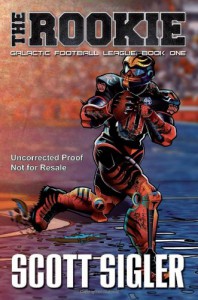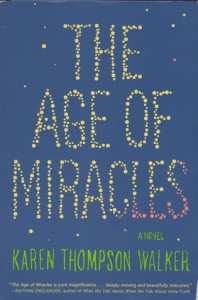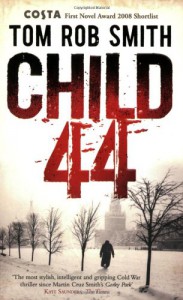Currently reading
Man's Search for Meaning
Franny and Zooey
Drummer Boy
The Gun Seller
Adventures of Huckleberry Finn
Wool (Wool, #1)
 amazing world building and character creation in so few words. The tension and my curiosity keep me turn pages. Short, brilliant now I need to read the rest
amazing world building and character creation in so few words. The tension and my curiosity keep me turn pages. Short, brilliant now I need to read the rest
The Rookie (Galactic Football League)
 I love Space, I love aliens and I love The Future. But I really don't like sport, especially American Football (come on guys, if you were real men you'd remove all that padding like Rugby players :D). And I really don't like books about sport (except Quiddich).
I love Space, I love aliens and I love The Future. But I really don't like sport, especially American Football (come on guys, if you were real men you'd remove all that padding like Rugby players :D). And I really don't like books about sport (except Quiddich).But I enjoyed the podcast of this story so much I bought the book!
And on a second reading it didn't disappoint.
I still don't understand the rules of American Football nor do I have much idea of how it is played but that doesn't matter because I love the characters, I love the action and I love the story-telling. The world-building is vast and comprehensive with believable aliens and breathing-taking planetary systems. The descriptions are detailed but not overloaded and keeping track of who's what is made easier by the distinct nomenclature for each specifies (without resorting to multiple constants or intrusive apostrophes.)
Quentin Barnes is a highly likable main protagonist but his team-mates are also well fleshed-out and feel familiar by the end of the book.
For my original review of the podcast book
The Windup Girl
 An excellent book, though not for the faint-hearted, that deserves all the hype and awards.
An excellent book, though not for the faint-hearted, that deserves all the hype and awards.This is a dystopian future created by a free market economy rather than a tyrannical dictator. Greedy corporations have destroyed the world's natural food resources while at the same time oil has run out and greatest energy sources has become human labour.
This is a brilliant premise and a complicated idea to express but the author does an outstanding job. I was sucked into the world in a few pages and although none of the characters is either admirable or heroic you quickly begin to care for them and become caught up in their fate.
And the world building… The masterpiece of his world building is that he doesn’t seem to be doing any. At first he just throws you into crazy, noisy, blight-infested Bankok and abandons you to survive. But gradually through vague comments and brief references you are able to gather information about how our world was reduced to such a state, about the greedy calorie-men and gene-rippers who have wreaked so much disease and destruction on the Earth.
Most reviews remark on the slow-pacing. I didn’t notice until I realised how long it was taking me to read this medium length book. The pace doesn’t drag but the narrative is so complete you want to savour every moment.
I also had no problem with the multiple points of view. Each character had a distinctive voice and the scenes switched seamlessly. I felt I came to know each character as an individual.
This is one of the best books I have read recently and I look forward to reading more by this author
Notes:
It is frequently labelled Steampunk but that is a total misnomer - there is no steam, no Victoriana, no brass and no goggles. The correct label seems to be biopunk, a sister genre to cyberpunk.
There isn't a lot of sex or violence but what it has is combined to horrendous effect, unpleasantly so. Definitely not YA like the author’s later books.
I also loved this review
http://www.goodreads.com/review/show/139838995
 1
1
SPOILER ALERT!
The Age of Miracles
 I bought this book on a whim having heard so many great reviews.
I bought this book on a whim having heard so many great reviews.The reviews were so enthusiastic that I rather expected to be swept off my feet by a delightful gem of a book. Unfortunately, I was disappointed.
Don't get me wrong, this book is good, just not that good.
It recounts the year in the life of a young teenage girl Julia, a coming of age story complicated by the fact that for some unexplained reason the Earth is slowing down causing the days to become longer and longer.
We gain a good impression of what is happening, how the changes affect Julia's neighbourhood and her family, the split between those who observe clock time and those who observe natural time.
What is lacking is a sense of peril or fear. As the situation degenerates and the Earth begins to die people just seem to be stunned and a little distant. No one panics, no one is overcome with hysteria. Even when people fall sick they seem to accept it with an equanimical fatality.
The colonies established by those observing natural time appear and then fade away without protest and almost without remark while the vandalism against the natural time observers who stay in the cities seems a half-hearted token rather than real discrimination or antipathy.
On a more personal level although Julia seems fond of her parents and them of her there was little more than polite interaction between them. As they experience probably the most distressing and confusing time of their lives they seem to have little to offer one another in the way of support or comfort.
Julia becomes more and more socially isolated as the school year progresses which lends a melancholy air to the narrative but also means that we lose our connection with her schoolmates and their point of view.
There is a short reprieve during her relationship with Seth but when he disappears from her life she seems to accept the situation with a depressing calm.
This is a provocative premise, competently recounted but like so much modern literary fiction it insists on being emotionally aloof, creating a barrier between the reader and any deeper feelings.
This book should have disturbed my sleep with feelings of dread and left me weeping at the fate of the Earth but instead I would remark that it was an interesting read.
Child 44
 Maybe when I put some time between myself and this book I will be able to give it the 5 stars I think it might deserve but reading it left me so horrified that I can't give it more than 4 stars at present.
Maybe when I put some time between myself and this book I will be able to give it the 5 stars I think it might deserve but reading it left me so horrified that I can't give it more than 4 stars at present.I was not ignorant about the excesses of the Soviet Regime in Stalin's time. I studied the Russian Revolution at school. I have read Solzhenitsyn. But I also grew up with Ronnie Reagan's 'Evil Empire' and the regimes of Brezhnev and Gorbachev.
I enjoyed Gorky Park a lot and thought Child 44 might be similar. But Gorky Park was written in 1980 and until I read Child 44 I didn't fully comprehend that for the USSR the 1950s was a totally different universe.
This book describes the Soviet justice system in appalling detail, the torture, the executions, the steam roller of a system against which there is no defense or protection. The realization that once you have been accused no explanation will be considered valid , no evidence will be acceptable as proof of your innocence, there will be no exoneration, no escape and anyone connected to you by blood or friendship will be considered guilty by association.
In this context is becomes completely understandable why people so willingly 'snitched' on their neighbours or agreed to cooperate with the State in spying on their friends and also why so few people stood up to the system and demanded change.
The story itself has three sections.
First we become acquainted with the major characters Leo, Leo's colleague Vasili and Leo's wife Raisa. We are also introduced to the system, the process of 'justice' in the USSR and Leo's part in it, a Leo who at this point believes in the system, believes that the torture and terror tactics are necessary to eventually improve everyone's lives.
The second section involves Leo's awakening, it shows how Leo begins to see the flaws in the system, begins to doubt what he is doing until he too becomes a victim of this 'justice' and loses all the pleasures and privileges of his former life.
Finally the narrative takes up the mystery of the murdered children. We have been shown flashes of this plot throughout the story but only at this point do the two plot lines come together. Leo realizes that despite the danger this investigation poses to his life he cannot let it be, he cannot accept the system's cover up and the lie that in the Soviet State such crimes do not happen. Through the investigation he discovers his true character and rebuilds his life.
At first my horror at the system overwhelmed my horror that the appalling crimes being committed. I quickly became involved in Leo's life and the dilemma's he faced, hoping that he would make the right decisions.
Only once Leo's world has collapsed does he have to grapple with the reality of life, of who he is and of people's true feelings towards him. All that is left in his life is the mystery of the murders and the conviction that they are being committed by a serial killer. Although even Leo is concerned that he maybe using the investigation as a way to redeem himself, morally, the narrative manages to convey the dread imbued by these harrowing crimes such that we are as convinced as the characters that they simply cannot remain passive and follow the Party line.
Despite the fact that the content gives us plenty to think about the plot moves forward at quite a pace. The pace slows a little as Leo and Raise settle into their new circumstances but then picks up again as the investigation reaches its conclusion.
This book is truly a page turner and several of the chapter endings left me in shock
but there is never a feeling that it is rushed nor does the story ever drag.
The conclusion of the investigation is well written and credible, however the end of the book seems a little convenient, a requirement of the fact that the book is the first in a series.
The Casual Vacancy
 Having been a fan of HP I knew that I enjoyed JK's writing style. I find her easy to read and frequently her turn of phrase makes me smile.
Having been a fan of HP I knew that I enjoyed JK's writing style. I find her easy to read and frequently her turn of phrase makes me smile.The same is true in the CV but the beginning of this is story is so implacably gritty and real it is almost a slap in the face, as if JK wanted to immediately disavow her readers of any illusions that this might be similar to HP.
Once my head had stop reeling I began to appreciate this warts and all depiction of English village life. No pictures postcards in this book. No picturesque church spires or colouful hanging-baskets round a cobbled market place. Instead there is the reality of gossip and politics, bigotry and in-fighting.
The narrative follows more in the French tradition with the crisis occurring almost at the beginning while the rest of the story examines the consequences. There is no action-packed adventure rather the progress of the plot is secondary to an examination of the thoughts and motivations of the characters involved.
However it avoids the naval-gazing, identity-seeking musings of modern literature instead we have characters providing jaundiced critiques of their neighbours' or pondering nefarious or desperate schemes to achieve their own ends, frequently to the detriment of political or social enemies.
Ultimately it is quite a depressing book but JK is true to form provides a satisfying ending.
I am still a JK fan and will continue to read her books.
Bethlehem Road Murder: A Michael Ohayon Mystery (Michael Ohayon Mysteries)
 I gave this 3 stars for the story though the translation deserves a maximum of one star.
I gave this 3 stars for the story though the translation deserves a maximum of one star.The book starts with a lot of dialogue which I found choppy and difficult to get into.
I'm not sure whether it was the quality of the translation or simply the fact that Israeli way of talking is so different from English.
I did enjoy the interaction between the members of the police team and the postmortem scene was just too gory for me.
The whole story was rather slow-paced but the rather introspective love scenes were heavy going and unsatisfying. I wasn't quite sure what our hero saw in Ada.
But the conclusion of the mystery was logical and quite tense.
For me the story became most engrossing and interesting when it delved into the history of the stolen Yemenite children. I remember the events with Rabbi Meshulam and the committee investigating the affair. The story accurately portrayed the anguish and uncertainty felt by the parents as well as the nebulous nature of both the accusations and the conclusions. (Even when children were found to have been adopted most DNA tests disproved a genetic connection with the people they had become convinced were their parents)
My father's family in from North Africa and several of his siblings spent many months in the immigrant camps and although Israel is a different place now there are still members of an older generation who express sentiments not dissimilar from those of Clara Beinish.
This is a slow paced mystery that also makes a reasonable attempt at literary fiction with several well developed characters and other familiar Israeli 'characters' brought to life in quick sketches.
Possibly in the original the writing style is also quite appealing from the translation you can have no idea.
Ah the translation. It was pretty much what you would expect if you stuck the whole text into Babelfish or Google translate and then corrected grammar and spelling. Maybe that is an exaggeration but there were many phrases translated literally from the Hebrew with no thought as to how an English speaker might understand them.
A few examples.
The darkness of Egypt – this is a metaphor used frequently in Hebrew and references the 9th biblical plague of Egypt from Exodus. I have never heard it used in English and as a result it just sounded awkward.
"The wicked man, what does he say?" – for a start the quote is incorrect, it should be 'the wicked son'. As it is a direct quote from the Hagada of Passover I doubt that any non-Jew not familiar with the liturgy of Passover would have any idea what he was talking about.
Also "the revenged of a woman scorned is the worst" is just lazy translation with such a well-known saying as 'Hell hath no fury like a woman scorned.'
And my favourite, mainly because it is also a favourite with Israeli Tourists, - 'go know'. This is a direct translation from Hebrew but in English 'go figure' would have been more appropriate.
The Revenant
 Faced with the prospect of being trapped at home on a lonely farmstead helping her mother look after a new born baby and her other siblings Willie decides, despite being underage and under qualified, to pose as a school teacher and take a position at a school for wealthy Native American young ladies.
Faced with the prospect of being trapped at home on a lonely farmstead helping her mother look after a new born baby and her other siblings Willie decides, despite being underage and under qualified, to pose as a school teacher and take a position at a school for wealthy Native American young ladies.At the school Willie is given the bedroom previously occupied by a young female student who died in mysterious circumstances and there are all sorts of ghostly occurrences.
Considering the students of the school I had expected to ghosts to have a Native American flavour introducing our protagonist to a world she barely knew existed however the story is more interested in introducing Willie to a completely alive, and rather handsome, Native American from the neighbouring school for wealthy Native American young gentlemen.
Willie is also introduced to the cliques and hierarchies of the school. She is left socially inferior due to her lack of means and experience.
The ghost story is quite standard and well-handled but acts more as a side plot than as the main story. The main narrative follows Willie in her trail and tribulations as a teacher, in her relationships with the girls and in her developing romance with Eli.
This is quite a gentle ghost story made more interesting by the setting.
I enjoyed it but it is definitely a light read.
Leviathan
 I was drawn to this book by the exquisite illustrations and the promises they held of fantastic world building.
I was drawn to this book by the exquisite illustrations and the promises they held of fantastic world building.The creatures created were fabulous and the machines even more intriguing.
I most enjoyed the narrative when told from the point of view of the Austrian prince Aleksander. While we are with the Clankers the story is pacey and exciting. I also enjoyed the testing my memory of A level history trying to remember which parts of the history were real and which alternate.
Unfortunately I found the other main character a little bit too 'jolly hockey sticks!' for my adult sensibilities. And I found the other important female character Dr Barlow to be irritating. The sections told from Deryn's point of view were full of action but still seemed a little ponderous.
I was also very disappointed to discover that the book ends halfway through the story. Most first books in a series give some kind of conclusion but this simply leaves you hanging.
I did really enjoy this book but felt I would have got much more pleasure from it, and the rest of the series, if I had read it when I was 11 years old.
Harry's Game
 I read this because the music from the TV series hunted me even though I never got to watch the program.
I read this because the music from the TV series hunted me even though I never got to watch the program.The book is exciting and horrifying (especially for someone brought up with The Troubles featuring on the news every night) and tragic.
It probably feels quite dated now but is worth reading.
Spider's Bite (Elemental Assassin, Book 1)
 Closer to a 3.5 but still the best Urban Fantasy I've read all year.
Closer to a 3.5 but still the best Urban Fantasy I've read all year.I was a little concerned as tales involving elementals and their magic generally doesn't do it for me but the opening chapter was a tour de force and convinced me to stay.
The advantage of having a professional assassin as your heroine is the absence of angst, she doesn't have time to double guess her every move.Although the other characters were pretty standard they weren't too cliche.
The interludes to build up the back story were a little clumsy and repetitive but not horrendously so. And the plot hummed along nicely.
Despite the tantalizing ending I doubt I will continue the series but it was a fun way to pass the time.
The Hare with Amber Eyes: A Hidden Inheritance
 Although this won't be my next read my mother gave it to me to put into 'protective custody' as a precaution against her 'lending' it to someone before I get a chance to read it.
Although this won't be my next read my mother gave it to me to put into 'protective custody' as a precaution against her 'lending' it to someone before I get a chance to read it.
Winging It: A Memoir of Caring for a Vengeful Parrot Who's Determined to Kill Me
 This is actually closer to a 3.5
This is actually closer to a 3.5I did expect it to be funnier but maybe I have matured and just don't find chaotic creatures so amusing anymore.
It was an easy read. A fun, well written memoir about the authors escapades with both her family and her pets.
At times it seemed incredible that this family never seemed to learn their lesson and constantly took on even more troublesome pets. But they seemed to have survived happy and intact.
Neuromancer
 To be honest I was a little intimidated by cyperpunk but this was on my shelf and not a brick so I gave it a chance.
To be honest I was a little intimidated by cyperpunk but this was on my shelf and not a brick so I gave it a chance.The beginning was a little bit Blade Runner (a good thing) and the jargon wasn’t too alien (maybe because since this book was published so many of the then strange words entered common usage)
I liked the characters, enjoyed the matrix and believed the storyline.
Most of the locations seemed dystopian, synthetic and a little distant so the Zionites and their more organic culture was a welcome variation. (Also an insight into the inspiration for the Zion of The Matrix)
But the only characters I felt any emotional connection to were Riviera, who engendered feelings of revulsion, and Dixie Flatline the ROM construct. All the others I found interesting but their well-being or mortality didn’t really concern me.
I found it difficult to understand why Wintermute, through Armitage, had been so anxious to get hold of Case. He didn’t seem to perform any great feats of hacking, most of the work was done by the Chinese program and any inspiration came from Dixie.
The storyline also left me feeling a little bereft. What should have been an ‘AHA!!’ moment was underplayed and tale seem to peter out into rather ordinary if natural conclusion.
I doubt I will continue the series but I’m sure this book will reward a reread.








